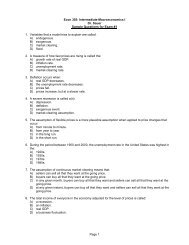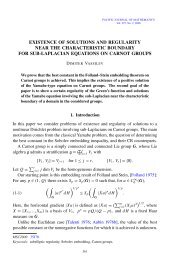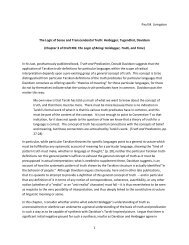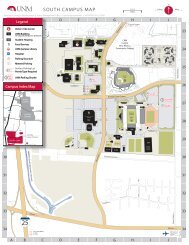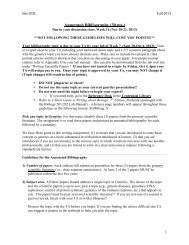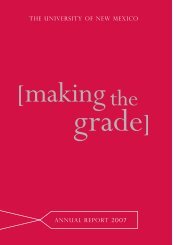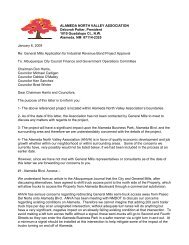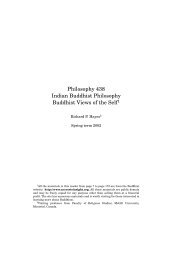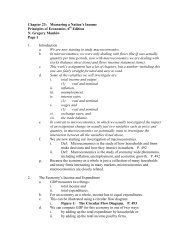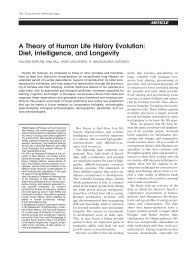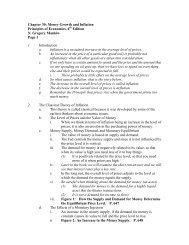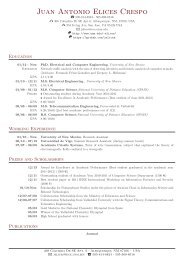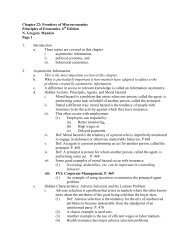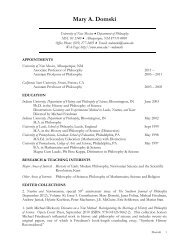- Page 1 and 2:
Underground Rivers from the River S
- Page 3 and 4:
Regarding Copyright Copyright © 20
- Page 5 and 6:
Underground Rivers INTRODUCTION Hyd
- Page 7 and 8:
Underground Rivers CHAPTERS 1 Greek
- Page 9 and 10:
Chapter 1 -- Greek Mythology CHAPTE
- Page 11 and 12:
Chapter 1 -- Greek Mythology Oceanu
- Page 13 and 14:
Chapter 1 -- Greek Mythology Recall
- Page 15 and 16:
Chapter 1 -- Greek Mythology In his
- Page 17 and 18:
Chapter 1 -- Greek Mythology DRAFT
- Page 19 and 20:
Chapter 1 -- Greek Mythology At the
- Page 21 and 22:
Chapter 1 -- Greek Mythology What p
- Page 23 and 24:
Chapter 2 -- Greek Philosophers Tha
- Page 25 and 26:
Chapter 2 -- Greek Philosophers Ana
- Page 27 and 28:
Chapter 2 -- Greek Philosophers tha
- Page 29 and 30:
Chapter 2 -- Greek Philosophers Ari
- Page 31 and 32:
Chapter 3 -- Roman Encyclopedists C
- Page 33 and 34:
Chapter 3 -- Roman Encyclopedists S
- Page 35 and 36:
Chapter 3 -- Roman Encyclopedists B
- Page 37 and 38:
Chapter 3 -- Roman Encyclopedists I
- Page 39 and 40:
Chapter 3 -- Roman Encyclopedists I
- Page 41 and 42:
Chapter 3 -- Roman Encyclopedists R
- Page 43 and 44:
Chapter 3 -- Roman Encyclopedists A
- Page 45 and 46:
Chapter 4 -- The Cross Topographia
- Page 47 and 48:
Chapter 4 -- The Cross After the He
- Page 49 and 50:
Chapter 4 -- The Cross small portio
- Page 51 and 52:
Chapter 4 -- The Cross As Etymologi
- Page 53 and 54:
Chapter 5 -- The Crescent CHAPTER 5
- Page 55 and 56:
822 . Ninth and tenth centuries 981
- Page 57 and 58:
Chapter 5 -- The Crescent The Extra
- Page 59 and 60:
Chapter 6 -- And Back to the Cross
- Page 61 and 62:
Chapter 6 -- And Back to the Cross
- Page 63 and 64:
Chapter 6 -- And Back to the Cross
- Page 65 and 66:
Chapter 6 -- And Back to the Cross
- Page 67 and 68:
Chapter 7 -- The Concept of Circula
- Page 69 and 70: Chapter 7 -- The Concept of Circula
- Page 71 and 72: Chapter 7 -- The Concept of Circula
- Page 73 and 74: Chapter 7 -- The Concept of Circula
- Page 75 and 76: Chapter 7 -- The Concept of Circula
- Page 77 and 78: Chapter 7 -- The Concept of Circula
- Page 79 and 80: Chapter 8 -- Transmuational and Bio
- Page 81 and 82: Chapter 8 -- Transmuational and Bio
- Page 83 and 84: Terrestrial Arteries Chapter 8 -- T
- Page 85 and 86: Chapter 8 -- Transmuational and Bio
- Page 87 and 88: Chapter 8 -- Transmuational and Bio
- Page 89 and 90: Chapter 9 -- Thermodynamic Engines
- Page 91 and 92: Chapter 9 -- Thermodynamic Engines
- Page 93 and 94: Chapter 9 -- Thermodynamic Engines
- Page 95 and 96: Chapter 9 -- Thermodynamic Engines
- Page 97 and 98: Johann Joachim Becher's theory, put
- Page 99 and 100: Chapter 10 -- Geophysical, Pnuemati
- Page 101 and 102: Weight of the Sea Chapter 10 -- Geo
- Page 103 and 104: Chapter 10 -- Geophysical, Pnuemati
- Page 105 and 106: Siphoning Chapter 10 -- Geophysical
- Page 107 and 108: Chapter 10 -- Geophysical, Pnuemati
- Page 109 and 110: Chapter 10 -- Geophysical, Pnuemati
- Page 111 and 112: Chapter 10 -- Geophysical, Pnuemati
- Page 113 and 114: Chapter 10 -- Geophysical, Pnuemati
- Page 115 and 116: Chapter 10 -- Geophysical, Pnuemati
- Page 117 and 118: Method 2. Water Pump Chapter 10 --
- Page 119: Chapter 10 -- Geophysical, Pnuemati
- Page 123 and 124: Chapter 11 -- Straining the Salt Pl
- Page 125 and 126: Chapter 11 -- Straining the Salt Ch
- Page 127 and 128: Chapter 12 -- Superterranean Metric
- Page 129 and 130: Theory: Chapter 12 -- Superterranea
- Page 131 and 132: Chapter 12 -- Superterranean Metric
- Page 133 and 134: Chapter 12 -- Superterranean Metric
- Page 135 and 136: Chapter 12 -- Superterranean Metric
- Page 137 and 138: Chapter 12 -- Superterranean Metric
- Page 139 and 140: Chapter 13 -- Hydrotheology/Theohyd
- Page 141 and 142: Chapter 13 -- Hydrotheology/Theohyd
- Page 143 and 144: Chapter 13 -- Hydrotheology/Theohyd
- Page 145 and 146: Chapter 13 -- Hydrotheology/Theohyd
- Page 147 and 148: Chapter 14 -- Hollow Earth Geophysi
- Page 149 and 150: Chapter 14 -- Hollow Earth Geophysi
- Page 151 and 152: Chapter 14 -- Hollow Earth Geophysi
- Page 153 and 154: Chapter 14 -- Hollow Earth Geophysi
- Page 155 and 156: Chapter 14 -- Hollow Earth Geophysi
- Page 157 and 158: Case 3: Gravitation plus 17.1 rotat
- Page 159 and 160: Chapter 14 -- Hollow Earth Geophysi
- Page 161 and 162: Chapter 14 -- Hollow Earth Geophysi
- Page 163 and 164: Singularities Chapter 15 -- The Mae
- Page 165 and 166: The Tales Chapter 15 -- The Maelstr
- Page 167 and 168: As in the sea between Scylla and Ch
- Page 169 and 170: Unattributed, 1678 Chapter 15 -- Th
- Page 171 and 172:
In the sketch to the right, the Mos
- Page 173 and 174:
Chapter 15 -- The Maelstrom The etc
- Page 175 and 176:
Chapter 15 -- The Maelstrom In Chap
- Page 177 and 178:
He intended to say, Chapter 16 -- U
- Page 179 and 180:
Chapter 16 -- Underground Rivers in
- Page 181 and 182:
Chapter 16 -- Underground Rivers in
- Page 183 and 184:
Chapter 16 -- Underground Rivers in
- Page 185 and 186:
Chapter 16 -- Underground Rivers in
- Page 187 and 188:
Willa Cather (1873-1947) Chapter 16
- Page 189 and 190:
Chapter 16 -- Underground Rivers in
- Page 191 and 192:
Chapter 16 -- Underground Rivers in
- Page 193 and 194:
Chapter 16 -- Underground Rivers in
- Page 195 and 196:
Chapter 17 -- Underground Rivers in
- Page 197 and 198:
Chapter 17 -- Underground Rivers in
- Page 199 and 200:
Chapter 17 -- Underground Rivers in
- Page 201 and 202:
Chapter 17 -- Underground Rivers in
- Page 203 and 204:
Chapter 17 -- Underground Rivers in
- Page 205 and 206:
Chapter 18 -- Picture Books CHAPTER
- Page 207 and 208:
Chapter 18 -- Picture Books Splash
- Page 209 and 210:
Chapter 18 -- Picture Books On that
- Page 211 and 212:
No Tooth, No Quarter by (1989) by J
- Page 213 and 214:
Chapter 18 -- Picture Books We've b
- Page 215 and 216:
Chapter 19 -- The Stratemeyer Boys
- Page 217 and 218:
Chapter 19 -- The Stratemeyer Boys
- Page 219 and 220:
Chapter 19 -- The Stratemeyer Boys
- Page 221 and 222:
Chapter 19 -- The Stratemeyer Boys
- Page 223 and 224:
Chapter 19 -- The Stratemeyer Boys
- Page 225 and 226:
Chapter 20 -- More Boys Club Serial
- Page 227 and 228:
Tanar of Pellucidar (1929) Chapter
- Page 229 and 230:
Chapter 20 -- More Boys Club Serial
- Page 231 and 232:
Chapter 20 -- More Boys Club Serial
- Page 233 and 234:
Chapter 20 -- More Boys Club Serial
- Page 235 and 236:
H. Rider Haggard Haggard's sequel t
- Page 237 and 238:
Jewels of Gwahlur (1935), a Conan t
- Page 239 and 240:
Chapter 20 -- More Boys Club Serial
- Page 241 and 242:
Chapter 21 -- Boys Club Singles The
- Page 243 and 244:
Chapter 21 -- Boys Club Singles ben
- Page 245 and 246:
Chapter 21 -- Boys Club Singles Swa
- Page 247 and 248:
Chapter 21 -- Boys Club Singles Jos
- Page 249 and 250:
Chapter 21 -- Boys Club Singles She
- Page 251 and 252:
Chapter 21 -- Boys Club Singles "If
- Page 253 and 254:
Chapter 21 -- Boys Club Singles "We
- Page 255 and 256:
Chapter 21 -- Boys Club Singles Tom
- Page 257 and 258:
Chapter 21 -- Boys Club Singles wou
- Page 259 and 260:
Chapter 21 -- Boys Club Singles The
- Page 261 and 262:
Chapter 21 -- Boys Club Singles In
- Page 263 and 264:
Chapter 21 -- Boys Club Singles Fre
- Page 265 and 266:
Chapter 21 -- Boys Club Singles Wha
- Page 267 and 268:
April 1920 March 1923 May 1927 Chap
- Page 269 and 270:
August 1948 February 1950 September
- Page 271 and 272:
March 1960 July 1961 October 1975 C
- Page 273 and 274:
Chapter 22 -- Boys' Life Boy Scouts
- Page 275 and 276:
Chapter 23 -- Girls, Too! CHAPTER 2
- Page 277 and 278:
Chapter 23 -- Girls, Too! She calle
- Page 279 and 280:
Chapter 23 -- Girls, Too! Change th
- Page 281 and 282:
Chapter 23 -- Girls, Too! river, Ja
- Page 283 and 284:
Chapter 23 -- Girls, Too! In Five G
- Page 285 and 286:
Fans weren't at a loss for discussi
- Page 287 and 288:
Chapter 23 -- Girls, Too! Polly of
- Page 289 and 290:
Chapter 23 -- Girls, Too! who has l
- Page 291 and 292:
Chapter 23 -- Girls, Too! Mary Q. S
- Page 293 and 294:
Chapter 23 -- Girls, Too! Here's a
- Page 295 and 296:
Final Thoughts Chapter 23 -- Girls,
- Page 297 and 298:
"The Underground River" Western Her
- Page 299 and 300:
Boys Clubs, too, help defeat Commun
- Page 301 and 302:
A page from the Flash Gordon # 10 r
- Page 303 and 304:
Super Heroes We'll begin with nine
- Page 305 and 306:
Chapter 24 -- Underground Rivers in
- Page 307 and 308:
Batman #48, August-September 1948 B
- Page 309 and 310:
Chapter 24 -- Underground Rivers in
- Page 311 and 312:
Superman #154, March 2000 Chapter 2
- Page 313 and 314:
Chapter 24 -- Underground Rivers in
- Page 315 and 316:
Chapter 25 -- Radio Days and Saturd
- Page 317 and 318:
Chapter 25 -- Radio Days and Saturd
- Page 319 and 320:
Chapter 25 -- Radio Days and Saturd
- Page 321 and 322:
A couple of B-grade Durango Kid Wes
- Page 323 and 324:
Chapter 25 -- Radio Days and Saturd
- Page 325 and 326:
Chapter 25 -- Radio Days and Saturd
- Page 327 and 328:
As humankind nears extinction, a sc
- Page 329 and 330:
Chapter 25 -- Radio Days and Saturd
- Page 331 and 332:
Chapter 26 -- Subterranean Water Bo
- Page 333 and 334:
Chapter 26 -- Subterranean Water Bo
- Page 335 and 336:
Fictional underground river rides t
- Page 337 and 338:
Chapter 26 -- Subterranean Water Bo
- Page 339 and 340:
If we don't want to pour water to C
- Page 341 and 342:
Chapter 26 -- Subterranean Water Bo
- Page 343 and 344:
Chapter 26 -- Subterranean Water Bo
- Page 345 and 346:
William Miller envisioned a contrap
- Page 347 and 348:
Contrapositioned topography does no
- Page 349 and 350:
Chapter 27 -- Virtualizing the Imag
- Page 351 and 352:
Chapter 27 -- Virtualizing the Imag
- Page 353 and 354:
Chapter 27 -- Virtualizing the Imag
- Page 355 and 356:
Chapter 27 -- Virtualizing the Imag
- Page 357 and 358:
Chapter 27 -- Virtualizing the Imag
- Page 359 and 360:
Chapter 27 -- Virtualizing the Imag
- Page 361 and 362:
Chapter 27 -- Virtualizing the Imag
- Page 363 and 364:
Chapter 27 -- Virtualizing the Imag
- Page 365 and 366:
Chapter 27 -- Virtualizing the Imag
- Page 367 and 368:
Chapter 28 -- Et In Arcadia Ego CHA
- Page 369 and 370:
Chapter 28 -- Et In Arcadia Ego Str
- Page 371 and 372:
Chapter 28 -- Et In Arcadia Ego Ovi
- Page 373 and 374:
Chapter 28 -- Et In Arcadia Ego muc
- Page 375 and 376:
I see bright honor sparkle through
- Page 377 and 378:
Chapter 28 -- Et In Arcadia Ego Pou
- Page 379 and 380:
Arcadian Landscape, undated, but no
- Page 381 and 382:
Chapter 28 -- Et In Arcadia Ego Bas
- Page 383 and 384:
Art Chapter 29 -- The Underground R
- Page 385 and 386:
Destiny Chapter 29 -- The Undergrou
- Page 387 and 388:
Chapter 29 -- The Underground River
- Page 389 and 390:
Chapter 29 -- The Underground River
- Page 391 and 392:
Chapter 29 -- The Underground River
- Page 393 and 394:
Chapter 29 -- The Underground River
- Page 395 and 396:
Chapter 29 -- The Underground River
- Page 397 and 398:
Chapter 29 -- The Underground River
- Page 399 and 400:
Herbert Shore Elizabeth Ward Loughr
- Page 401 and 402:
Declan Kiberd Carlo Levi, R. and D.
- Page 403 and 404:
Alexander Saxton Andrew Rolle James
- Page 405 and 406:
John R. Reed Geoffrey Sanborn Alexa
- Page 407 and 408:
Jean Tardieu, The River Underground
- Page 409 and 410:
Chapter 30 -- Down to a Sunless Sea
- Page 411 and 412:
Chapter 30 -- Down to a Sunless Sea
- Page 413 and 414:
Chapter 30 -- Down to a Sunless Sea
- Page 415 and 416:
Chapter 30 -- Down to a Sunless Sea
- Page 417 and 418:
Chapter 30 -- Down to a Sunless Sea
- Page 419 and 420:
Chapter 30 -- Down to a Sunless Sea
- Page 421 and 422:
Chapter 30 -- Down to a Sunless Sea
- Page 423 and 424:
A few recent Sunless Sea book cover
- Page 425 and 426:
"Down-to Sunless Sea," Linda J Ging
- Page 427 and 428:
Chapter 31 -- Poems for Subterranea
- Page 429 and 430:
Walt Whitman's Leaves of Grass (185
- Page 431 and 432:
Chapter 31 -- Poems for Subterranea
- Page 433 and 434:
Chapter 31 -- Poems for Subterranea
- Page 435 and 436:
Chapter 32 -- To Cross the Styx CHA
- Page 437 and 438:
Chapter 32 -- To Cross the Styx We
- Page 439 and 440:
Chapter 32 -- To Cross the Styx We'
- Page 441 and 442:
Chapter 32 -- To Cross the Styx "A
- Page 443 and 444:
We'll begin our book collection wit
- Page 445 and 446:
Lawrence Durrell, Down the Styx (19
- Page 447:
Jonathan King, The Styx (2010) Poet



